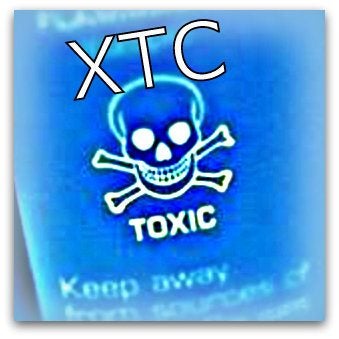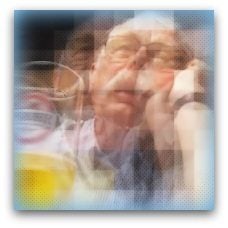Brain injury caused by drugs or alcohol

Excessive use of alcohol and/or drugs can lead to severe brain injury.
Many people believe that only years of alcohol abuse can damage the brain, but also a few weeks of 'holiday-drinking' or 'binge-drinking' has been shown to be a cause of brain injury.
Drugs
Nowadays, youngsters start at younger age with soft drugs than before. Young people who start smoking cannabis at age 13 can be addicted to cocaine, on average, at age 19.
Drugs can lead to the following physical disorders:
Cardiac arrest / Heart attack
Heart failure
Cerebral hemorrhage
Cerebral Infarction
Neurological damage to an unborn child during pregnancy, see also our page on Cerebral Palsy.
XTC
More and more studies show that the recreational use of MDMA - the substance in ecstasy - is neurotoxic, that is: toxic to your brain.
Ecstasy users who take amphetamine / speed, are even more likely to have brain damage.
You also have a greater risk of brain damage and damage to other organs, if your body temperature is higher. Ecstasy can disrupt your body, but dancing in a warm room also leads to a higher temperature.
Research shows that brain damage can occur even if a person weighing 140 pounds takes 3 pills of 70 milligrams , within a period of 12-24 hours.
Damage to brain may also occur when an individual weighing 70 kilograms ingested 140 mg XTC at once. Read more.....

Dying by swollen brain after using XTC, MDMA is the active substance in XTC. MDMA makes it difficult to pee and gives a dry mouth. The kidneys excrete less water. The body retains moisture.
A dry mouth makes one drink more than usual. The appetite is suppressed, so one eates less. This does not have to cause problems. Drinking too much water or too much soda or beer is risky. A water intoxication may occur...
The brain then swell and push against the skull. This can lead to a life-threatening condition of epileptic seizures, coma and eventually death.
XTC gives thirst →→ drinking too much water, soft drinks or beer gives a brain swelling →→ epileptic seizures/ coma →→ death.
Cocaine changes the brain /Cocaine alters the user.
Drugs makes nerves compounds with each other, which results in a long-lasting or permanent changes in behavior. The new compounds stimulate the brain addiction.
Cocaine interferes with the process of conditioning, in which a behavior is strengthened or weakened, depending on its consequences .
Short-term blissful feeling and high confidence ...but potential risk of brain injury.

Alcohol
Alcohol is bad for brain. Alcohol is a tranquilizer in all brain cells, making the communication between neurons slows.
In time, brain cells will be lost. The loss of brain tissue is very clear from the daily drinking 6 glasses. Even over a short period ... (holiday boozing) This loss is amongst others, due to the fact that alcohol is toxic to brain cells and deficiencies of vitamin B1, due to alcohol.
In particular, the prefrontal cortex may deteriorate. Between age 12 and 18, mainly that front part of the brain, the prefrontal cortex, matures. The prefrontal cortex may not develop normally. This plays a role in reasoning, planning, problem solving, consideration for others, self-control and the "conscience".
The memory may deteriorate too. The brain of young people are still in development and have an increased vulnerability to the adverse effects of alcohol.
Drinking under 16 is therefore strongly discouraged. Not only will brain damage occur much faster. It is also true that young children are much quicker to get a life-threatening alcohol intoxication.
Korsakov syndrome is one of the most well-known disorders of the brain, after drinking too much alcohol. A few weeks 'holiday drinking' can already lead to Korsakov syndrome. Alcohol and the adolescent Brain-Human Studies shows:
"Alcohol consumption during this developmental period may have profound effects on brain structure and function. Heavy drinking has been shown to affect the neuropsychological performance (e.g., memory functions) of young people and may impair the growth and integrity of certain brain structures. Furthermore, alcohol consumption during adolescence may alter measures of brain functioning, such as blood flow in certain brain regions and electrical brain activities. Not all adolescents and young adults are equally sensitive to the effects of alcohol consumption, however. Moderating factors—such as family history of alcohol and other drug use disorders, gender, age at onset of drinking, drinking patterns, use of other drugs, and co-occurring psychiatric disorders—may influence the extent to which alcohol consumption interferes with an adolescent’s normal brain development and functioning.
EFFECTS ON NEUROPSYCHOLOGICAL PERFORMANCE
One aspect of brain functioning that is commonly studied in youths as well as older adults is neuropsychological performance,1 which includes memory function, attention, visuospatial skills, and executive functioning (e.g., planning, abstract reasoning, and goal-directed behavior). (1 The term “neuropsychological performance” refers to performance on standardized tests of thinking and memory skills.) Several studies have suggested that heavy alcohol use in young people appears to be associated with potentially long-term deleterious effects on neuropsychological functioning."
Wernicke Korsakoff Syndrome:
Wernicke-Korsakoff syndrome (WKS) is a spectrum of disease resulting from thiamine deficiency, usually related to alcohol abuse. Wernicke's encephalopathy was originally described by German neurologist Karl Wernicke in 1881 as a classic triad of symptoms (mental confusion, ataxia and ophthalmoplegia). Korsakoff's psychosis is the late manifestation of the condition,
Korsakoff syndrome is a chronic memory disorder caused by severe deficiency of thiamine (vitamin B-1). Korsakoff syndrome is most commonly caused by alcohol misuse, but certain other conditions also can cause the syndrome. ( also be associated with AIDS, chronic infections, poor nutrition and certain other conditions.)
Symptoms of Wernicke encephalopathy include:
- Confusion and loss of mental activity that can progress to coma and death
- Loss of muscle coordination (ataxia) that can cause leg tremor
- Vision changes such as abnormal eye movements (back and forth movements called nystagmus), double vision, eyelid drooping
- Alcohol withdrawal
Symptoms of Korsakoff syndrome:
- Inability to form new memories
- Loss of memory, can be severe
- Making up stories (confabulation)
- Seeing or hearing things that are not really there (hallucinations)
Korsakoff syndrome causes problems learning new information, inability to remember recent events and long-term memory gaps. Memory problems may be strikingly severe while other thinking and social skills are relatively unaffected. For example, individuals may seem able to carry on a coherent conversation, but moments later be unable to recall that the conversation took place or to whom they spoke.
Those with Korsakoff syndrome may "confabulate," or make up, information they can't remember. They are not "lying" but may actually believe their invented explanations. Scientists don't yet understand why Korsakoff syndrome may cause confabulation.
Scientists don't yet know exactly how Korsakoff syndrome damages the brain. Research has shown that severe thiamine deficiency disrupts several biochemicals that play key roles in carrying signals among brain cells and in storing and retrieving memories. These disruptions destroy brain cells and cause widespread microscopic bleeding and scar tissue.
 Wernicke-Korsakoff disease can start at young age too!
Wernicke-Korsakoff disease can start at young age too!
Most cases of Korsakoff syndrome result from alcohol misuse. Scientists don't yet know why heavy drinking causes severe thiamine deficiency in some alcoholics, while others may be affected primarily by alcohol's effects on the liver, stomach, heart, intestines or other body systems.
Resources: Nattional Institute On Alcohol Abuse and Alcoholism, Alzheimer's Association, http://www.alz.org/dementia/wernicke-korsakoff-syndrome-symptoms.asp